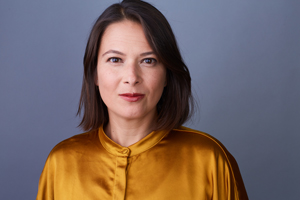Online
Summary:Australia Director at Human Rights Watch, Elaine Pearson delivers the 2021 Sir James Plimsoll Lecture
Presenter(s):
- Elaine Pearson, Australian Director, Human Rights Watch
Today’s world is a challenging time for human rights. In many parts of the world, authoritarianism is rising while democracy is under siege. Street protest movements have arisen and been brutally suppressed by authorities through draconian laws and at times with excessive use of force. Some of the traditional Western governments that have defended human rights face their own legitimacy challenges. Meanwhile, the space for media and civil society to expose and push back against human rights violations is shrinking in many countries around the world. Journalists and activists face arrests, intimidation, and violence. And the coronavirus pandemic much like the threat of terrorism has provided a convenient pretext for some governments to crack down further on civil liberties and silence criticism. International institutions such as the UN are being tested.
At the same time, solidarity between activists and between like-minded governments around the world are pushing back against repression. Technology is a tool for surveillance and repression, but also a powerful means of mobilizing people and documenting violations in real time through smartphones.
In these testing times, this lecture will explore the role of human rights in foreign policy and what steps the Australian government can take to defend human rights values that are under attack.
About the Speaker
 Elaine Pearson is the Australia Director at Human Rights Watch, based in Sydney. She established Human Rights Watch’s Australia office in 2013 and works to influence Australian foreign and domestic policies in order to give them a human rights dimension. Pearson writes frequently for a range of publications and her articles have appeared in the Guardian, the Sydney Morning Herald, the Australian, Foreign Policy and the Washington Post. From 2007 to 2012 she was the Deputy Director of Human Rights Watch's Asia Division based in New York. She has conducted numerous human rights investigations in Australia and around the world.
Elaine Pearson is the Australia Director at Human Rights Watch, based in Sydney. She established Human Rights Watch’s Australia office in 2013 and works to influence Australian foreign and domestic policies in order to give them a human rights dimension. Pearson writes frequently for a range of publications and her articles have appeared in the Guardian, the Sydney Morning Herald, the Australian, Foreign Policy and the Washington Post. From 2007 to 2012 she was the Deputy Director of Human Rights Watch's Asia Division based in New York. She has conducted numerous human rights investigations in Australia and around the world.
Prior to joining Human Rights Watch, Pearson worked for the United Nations and various non-governmental organizations in Bangkok, Hong Kong, Kathmandu and London. She is an adjunct lecturer in law at the University of New South Wales, on the advisory committee of UNSW’s Australian Human Rights Institute and on the board of the Global Alliance Against Traffic in Women. Pearson holds degrees in law and arts from Murdoch University and obtained her Master's degree in public policy at Princeton University's School of Public and International Affairs.
The Sir James Plimsoll Lecture is held in partnership with


About the Sir James Plimsoll Lecture
Sir James Plimsoll was one of the most distinguished diplomats in the history of Australia’s Department of External Affairs (later the Department of Foreign Affairs and Trade). The previous Foreign Minister, Alexander Downer, has labelled him ‘Australia’s greatest ambassador’.
After serving in the AIF in the Directorate of Research and Civil Affairs, Plimsoll was appointed to the Far Eastern Commission, tasked with overseeing the Allied Council for Japan during the occupation of that country. In 1948 he was appointed a First Secretary of the Department of External Affairs, and in 1950 was sent as the Australian representative to the United Nations Commission for the Unification and Rehabilitation of Korea (UNKURK), where he formed a close working relationship with Sygman Rhee, the South Korean President.
Plimsoll was appointed as Australia’s Permanent Representative to the United Nations in 1959, and became Australia’s High Commissioner to India and Ambassador to Nepal in 1962. He was chosen to be Head of the Department of External Affairs in 1965. In 1970, Plimsoll was appointed as Ambassador to the United States, and in 1974 he became Ambassador to the USSR. He was appointed as Ambassador to Belgium, Luxembourg, and the EEC in 1977 and in 1980 became High Commissioner to the United Kingdom. His final diplomatic post was as Ambassador to Japan in 1981 and 1982.
He later served as the highly popular and respected Governor of Tasmania from 1982 until his death on 8 May 1987 – only shortly after having his initial five-year term extended.